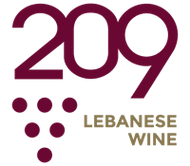209 Hot Stories
Heading to your first wine-tasting? Here’s how to make the most of it
Wine-tasting events can be very enjoyable, especially if they’re experienced with good company. To make the most of a wine-tasting event, there are a number of things to be mindful...
Notes and Impressions from a VINIFEST 2017 visitor
Interesting show. Several good surprises, some of which can even be called amazing. Overall Lebanese wine quality still on an upward trend. Lebanese Wine discovery: Chateau Marsyas red 2012: Amazing....
This is how you can store wine!
Wine drinking is a common activity that isn’t limited to occasions. It has become a pleasure in itself, or a means to bring people together, celebrate, or unwind at the...
On Lebanese Wine…Q&A with Mr. Zafer Chaoui, UVL President
1- What, in your opinion, is one thing that truly distinguishes Lebanese wine? The exceptional weather permits for the Lebanese wineries to produce natural wine with almost no use of...
A Wine affair… Pairing herbs with wine
Why is wine-herb pairing a good idea? It’s one more way you could enjoy your wine drinking experience. By pairing the right wine with the right dish, the flavors are...
5 things to completely avoid on a wine date!
It’s always nice to spend time getting to know one another over a nice meal and a good bottle of wine. While you’re trying to make the best impression on...
Pairing Lebanese Wine and Lebanese Food
Il y a les repas du dimanche. Des grandes tablées, pas mal de bruit au restaurant ou à la maison, des enfants, des vieux, des jeunes et des adultes, toutes...
209 partners with CXC to take you on an exclusive journey
Food amateurs and wine lovers, the below is for you! What a good idea to blend two passions: gastronomy and wine. Then, how to transform this cool idea into a...








